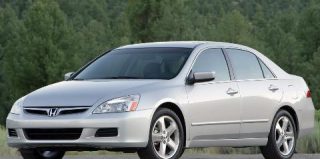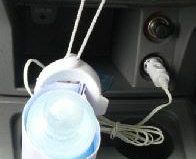WSOP final table not foreign to Belgium’s Kenny Hallaert A November tour to Las Vegas for the final table of the World Series of Poker`s $Ten,000 buy-in No-limit Texas Hold `em World Championship is kicking off to become routine for Kenny Hallaert. A November excursion to Las Vegas for the final table of the World […]
CES 2017: Top five Automotive Announcements
- Faraday Future’s FF91 can go from 0-100 kmph in under Two.Five seconds
- The Honda NeuV is designed to pick up and drop off passengers
- Amazon Alexa voice control system to be introduced in Ford cars
The Consumer Electronics Showcase or CES ended last week and albeit the showcase has always been known more for handheld gadgets and brainy phones, etc; this year, the concentrate of the showcase clearly seems to have shifted more towards clever mobility than ever before. SO here are our top five announcements from the CES that are getting us excited.
Faraday Future FF91
Startup automotive manufacturer Faraday Future has ultimately unveiled their SUV for the future at CES 2017. Faraday Future had tweeted that it would “unveil the future” and the FF91 clearly looks like it belongs on another planet! And this is not a concept car but a production ready one! Under the skin, the FF91 can go from 0-100 kmph in under Two.Five seconds thanks to a one thousand fifty bhp electrified power unit. The range on the FF91 is upto seven hundred kms and can recharge its lithium ion batteries in just one hour to total capacity. With some uncertainty about Faraday Future’s future, we do hope the auto manufacturer survives and makes the FF91 which is due for a public launch in 2018.
The little Honda concept vehicle certainly seems to have captured hears at the two thousand seventeen CES display despite being very strange in terms of design. The NeuV concept is essentially a two seater urban vehicle that is Honda’s very first foray into clever rail sharing car platforms. The NeuV designed to pick up and drop off passengers when its possessor isn’t using it, meaning it can earn its holder money. Of course, the NeuV is electrical and has features like quick charging. It will be interesting to see how these rail sharing brainy cars of the future will play out a decade from now.
From one Japanese manufacturer to another. The Toyota showcase at the two thousand seventeen CES was aimed more towards automobiles with Artificial Intelligence or AI rather than just showcasing future automotive hardware. Toyota already makes a range of hybrid cars globally including the popular Prius, which is why their participation at CES isn’t surprising. The Concept-I comes with an artificial intelligence agent, called Yui. Yui essentially takes communicating with your car to a next level with the AI actually learning your habits and then responding with in-car lighting, sound and touch. Toyota says that a elementary question and response based voice instruction system (like Siri) is outdated and this is the future.
Amazon Alexa and Ford
Ford’s participation at CES might have been overshadowed by their announcement that they pulling out of their fresh Mexican plant but the American manufacturer had a few surprises up its sleeve to make its presence worthwhile. In terms of current tech, Ford announced the Fusion hybrid in its latest avatar – a car that will also be the basis of its autonomous driving program for the next few years. The fresh car has many advancements in its sensors and according to Ford, is much more aware of its surroundings.
The thickest Ford announcement at CES was that it will introduce the Amazon Alexa voice control system to its cars. That’s a big deal for Amazon, which had made significant in-roads in getting its service into pretty much every facet of day to day life.
Nvidia and Audi
With all the tech major getting into the automotive space for a lump of the pie, it was no surprise that Nvidia would go after suite. Nvidia, known more for its excellent processing chips and graphic setups has tied up with Audi to make the next generation of autonomous vehicles. Audi and Nvidia have announced that they will showcase a self driving car in the next twelve months. The two companies have already been working closely in the last one year to make this fresh AI car platform that will act as a base to future Audi products.
For the latest auto news and reviews, go after CarAndBike on Twitter, Facebook, and subscribe to our YouTube channel.
CES 2017: Top five Automotive Announcements – NDTV CarAndBike
CES 2017: Top five Automotive Announcements
- Faraday Future’s FF91 can go from 0-100 kmph in under Two.Five seconds
- The Honda NeuV is designed to pick up and drop off passengers
- Amazon Alexa voice control system to be introduced in Ford cars
The Consumer Electronics Display or CES ended last week and albeit the demonstrate has always been known more for handheld gadgets and wise phones, etc; this year, the concentrate of the demonstrate clearly seems to have shifted more towards brainy mobility than ever before. SO here are our top five announcements from the CES that are getting us excited.
Faraday Future FF91
Startup automotive manufacturer Faraday Future has ultimately unveiled their SUV for the future at CES 2017. Faraday Future had tweeted that it would “unveil the future” and the FF91 clearly looks like it belongs on another planet! And this is not a concept car but a production ready one! Under the skin, the FF91 can go from 0-100 kmph in under Two.Five seconds thanks to a one thousand fifty bhp electrified power unit. The range on the FF91 is upto seven hundred kms and can recharge its lithium ion batteries in just one hour to utter capacity. With some uncertainty about Faraday Future’s future, we do hope the auto manufacturer survives and makes the FF91 which is due for a public launch in 2018.
The lil’ Honda concept vehicle certainly seems to have captured hears at the two thousand seventeen CES demonstrate despite being very strange in terms of design. The NeuV concept is essentially a two seater urban vehicle that is Honda’s very first foray into wise rail sharing car platforms. The NeuV designed to pick up and drop off passengers when its proprietor isn’t using it, meaning it can earn its holder money. Of course, the NeuV is electrical and has features like quick charging. It will be interesting to see how these rail sharing brainy cars of the future will play out a decade from now.
From one Japanese manufacturer to another. The Toyota showcase at the two thousand seventeen CES was aimed more towards automobiles with Artificial Intelligence or AI rather than just showcasing future automotive hardware. Toyota already makes a range of hybrid cars globally including the popular Prius, which is why their participation at CES isn’t surprising. The Concept-I comes with an artificial intelligence agent, called Yui. Yui essentially takes communicating with your car to a next level with the AI actually learning your habits and then responding with in-car lighting, sound and touch. Toyota says that a elementary question and reaction based voice instruction system (like Siri) is outdated and this is the future.
Amazon Alexa and Ford
Ford’s participation at CES might have been overshadowed by their announcement that they pulling out of their fresh Mexican plant but the American manufacturer had a few surprises up its sleeve to make its presence worthwhile. In terms of current tech, Ford announced the Fusion hybrid in its latest avatar – a car that will also be the basis of its autonomous driving program for the next few years. The fresh car has many advancements in its sensors and according to Ford, is much more aware of its surroundings.
The largest Ford announcement at CES was that it will introduce the Amazon Alexa voice control system to its cars. That’s a big deal for Amazon, which had made significant in-roads in getting its service into pretty much every facet of day to day life.
Nvidia and Audi
With all the tech major getting into the automotive space for a chunk of the pie, it was no surprise that Nvidia would go after suite. Nvidia, known more for its excellent processing chips and graphic setups has tied up with Audi to make the next generation of autonomous vehicles. Audi and Nvidia have announced that they will showcase a self driving car in the next twelve months. The two companies have already been working closely in the last one year to make this fresh AI car platform that will act as a base to future Audi products.
For the latest auto news and reviews, go after CarAndBike on Twitter, Facebook, and subscribe to our YouTube channel.



